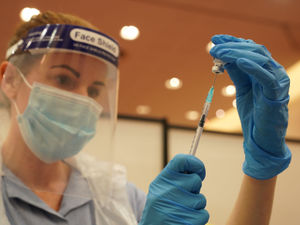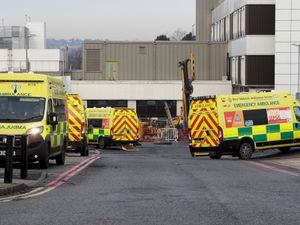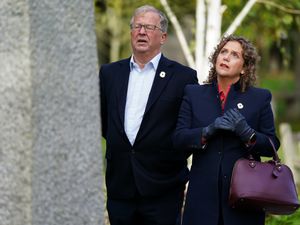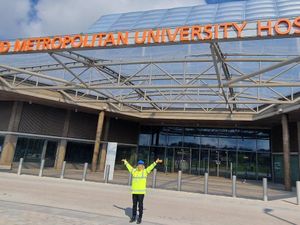Compulsory vaccine U-turn welcomed as thousands of health staff remain unjabbed
A government U-turn on mandatory Covid jabs for frontline NHS workers has been welcomed by the region's nursing union.

Health Secretary Sajid Javid has confirmed the controversial policy is under review, and has launched a consultation on the plans.
It came amid warnings that thousands of unvaccinated health staff across the country could face the sack on April 1 – with a February 3 deadline to have had their first jab.
The situation would add to the pressure being felt by under-strain NHS trusts across the country.
It also follows the policy coming into force in the care sector last year, with some workers being sacked or voluntarily leaving the profession.
Lindsay Meeks, Royal College of Nursing regional director for the West Midlands, said the proposal was "never the right or proportionate thing to do".
Thousands of workers across the West Midlands would be at risk if the government went ahead with the policy.
The most recent data shows 3,165 workers were unvaccinated across The Royal Wolverhampton NHS Trust, Walsall Healthcare NHS Trust, Dudley Group NHS Foundation Trust, and Sandwell and West Birmingham Hospitals NHS Trust.
Meanwhile Professor David Loughton CBE, chief executive of the Royal Wolverhampton NHS Trust, told a meeting of the trust board that "no action" would be taken while it awaits further guidance from the government.
Professor Loughton, who heads up the trust which runs New Cross Hospital, told a public trust board meeting the situation was very "complicated".
He said: "There's no action (at the trust) on February 3 as we wait for further guidance to come out and that's got to be our position.
"We still, and I hope everyone agrees, should be recommending to all our staff to get vaccinated. Vaccination is a key going forward, irrespective of the changes. I would say we need to wait until we get the absolute guidance (from the Government)."
Professor Loughton said the trust could, potentially, receive claims under the Equality Act over the changes around people who have not been employed because they have not received a jab.
He added: "It's not as easy as changing the approach, we need the detail before we take any action. We will be taking no action on the February 3, we will be awaiting further guidance and the necessary legislative changes that need to be made."
Professor Steve Field CBE, chairman of the board, backed the recommendation for the board to continue to highlight the benefits of the vaccine – and raised concerns over the policy, adding: "If people are off sick with Covid, they can't look after patients".
Chief people officer Alan Duffell added a letter had been sent out to NHS bodies calling on them to pause the HR process until changes to legislation and further guidance comes out.
Ms Meeks said: "We welcome the about-turn on this. Requiring health care workers to be fully vaccinated in order to keep their job was never the right or proportionate thing to do.
“The NHS across the Midlands has a persistent shortage of almost 8,000 registered nurses. The workforce is already depleted and staff are exhausted by the pandemic, so the prospect of unvaccinated workers being dismissed was unthinkable. It would have seriously jeopardised patient care.
“We support vaccination for health care staff, and the vast majority of NHS staff are vaccinated, but we believe they should be able to exercise a choice about vaccination without facing an ultimatum to either have the jab or lose their job.
“Let’s remember that we are talking about responsible and trusted professionals who are already taking all due precautions at work to minimise the risk of catching and transmitting the Covid virus, such as wearing PPE and observing good practice on controlling and preventing infection.”
A joint statement from the chief executives of NHS Confederation and NHS Providers, Matthew Taylor and Chris Hopson, expressed frustration at an "11th hour change" in the policy.
They said: "NHS leaders are frustrated to have such a significant change in policy at the 11th hour given all the hard and complex work that has gone into meeting the deadline set by the government.
"They recognise the reasons the government has given for the changes – the risk to services and the different risk from Omicron compared to previous variants.
"But there will be concern at what this means for wider messaging about the importance of vaccination for the population as a whole.
"We must also be mindful of the frustration this late change will have caused for some staff and the government must ensure clear guidance is quickly made available to support managers to implement this change in approach.
"Finally, we are also conscious of the impact this will have on our colleagues working in social care. A large number of staff left their roles when mandatory vaccination became law in the social care sector last autumn. This U-turn will therefore cause similar frustration in social care given the disruption to service delivery that resulted from loss of staff last November."





